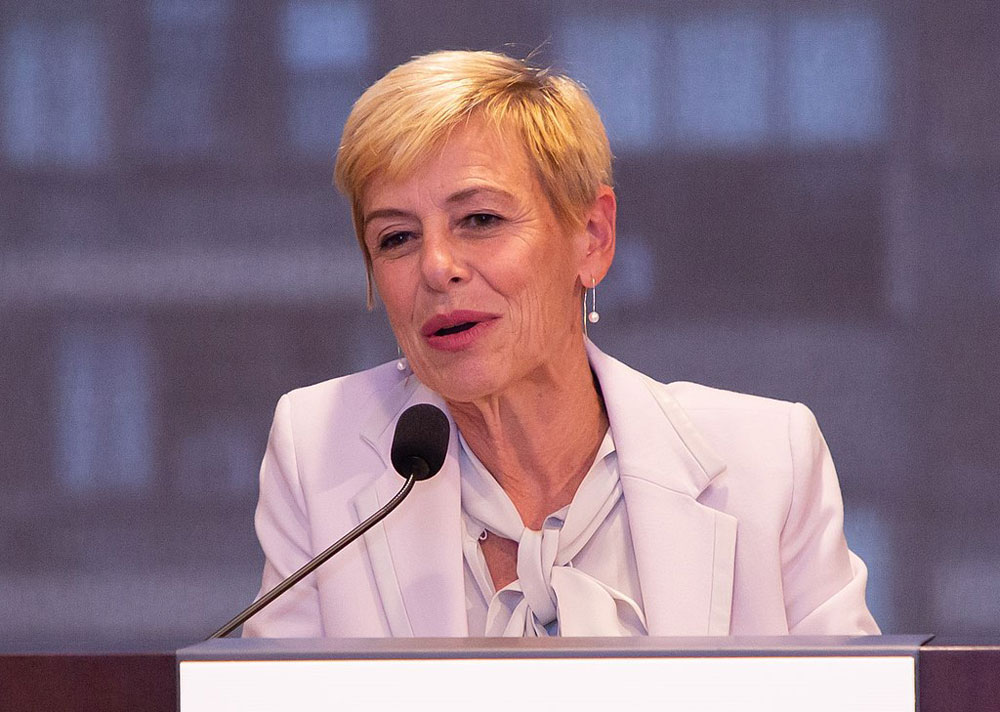April 7, 2015; Keeping a Close Eye on Philanthropy (NCRP)
This year’s “NCRP Impact Award” winners comprise a list of standout foundations that warrant the recognition they will be receiving at the awards ceremony to be held at the annual conference of the Center for Effective Philanthropy this May. It would take strenuous mental gymnastics to argue against awards to the New York Foundation, long committed to funding community-based organizing and advocacy in the New York City area; the Needmor Foundation, a small funder that has done the same nationally; and the Open Society Foundations, a leading national and international funder in the areas of human rights and building and protecting democracy.
One of the winners, though, the Blue Shield of California Foundation, has a somewhat troubling aspect—and it’s not the foundation’s philanthropy. In fact, the Blue Shield of California Foundation, if it were simply the foundation by itself, would merit the award as much as any in the country for its unparalleled commitment to domestic violence issues. A keyword search on the Foundation Directory Online of grants involving domestic violence issues puts Blue Shield of California Foundation at the top in terms of number of grants (1009), more than twice as many as the Avon Foundation for Women, which also does impressive DV grantmaking. Major recipients of Blue Shield’s DV grants include the Women’s Foundation of California, a regrantor in this arena, the Family Justice Center Alliance in San Diego, and the California Partnership to End Domestic Violence, just to name three of the largest recipients of DV funding.
At Nonprofit Quarterly, we’ve written about the Blue Shield Foundation’s commitment to supporting veterans, part of which came from the foundation’s programs in domestic violence. In 2012, for example, we highlighted the foundation’s making the analytical and concomitant philanthropic link between the foundation’s concerns about domestic violence and the issues around the high rate of domestic violence within families of veterans returning from Iraq and Afghanistan. That seemed to evolve and deepen into a foundation commitment to veterans’ health issues more broadly, as we wrote in 2013 about a Council on Foundations panel on veterans funding issues and in 2014 about the Blue Shield Foundation’s leadership role in helping get $174 million in foundation commitments to the Joining Forces initiative of Michelle Obama and Jill Biden.
Sign up for our free newsletters
Subscribe to NPQ's newsletters to have our top stories delivered directly to your inbox.
By signing up, you agree to our privacy policy and terms of use, and to receive messages from NPQ and our partners.
The problem isn’t the philanthropy of the Blue Shield of California Foundation. It’s the parent organization, Blue Shield of California. After a long, in-depth audit of the Blue Shield of California conducted by the California Franchise Tax Board, the state pulled Blue Shield’s tax-exempt status late last summer The audit had been in the works for a long time, with plenty of coverage of weaknesses in Blue Shield’s track record as a health insurer, but the state made its decision to nix Blue Shield as a nonprofit last August, though the news of the decision only eked out this spring. While the state hasn’t made the specific reasons for its decision known, among the possibilities are Blue Shield’s outsized $4.2 billion reserve fund, much more than it needs, its continuing requests for rate increases despite that excessive reserve fund, its documented fights with state regulators over the inadequate attention it pays to the poor, and its track record of resisting nonprofit-like financial transparency.
Blue Shield’s former director of public policy, Michael Johnson, bolted from the insurer, charging that Blue Shield acts just like a for-profit insurer and as such is “shortchanging the public of the social welfare benefits taxpayers have paid it to provide.” He is leading a campaign to compel Blue Shield to turn over the value of its formerly tax-exempt assets, which he says runs to $10 billion, to public healthcare programs, potentially even to and through the Blue Shield of California Foundation itself. The implication of Johnson’s charge is that the Blue Shield of California Foundation, which in calendar year 2013 received $37.5 million from the parent company and paid out $38.5 million in grants, some of which involving grants committed in previous years, and approved another $4.9 million in future grant spending, is hardly an adequate philanthropic counterbalance to Blue Shield of California’s immense assets and inadequate social welfare benefits. (Note: Unlike its financially opaque corporate parent, the financials of the Blue Shield of California Foundation, with details on salaries, other administrative costs, and grants, are posted on the foundation’s website.)
None of this controversy impugns the admirable grantmaking of the professionals who direct the Blue Shield of California Foundation. It does, however, raise questions for advocacy organizations such as NCRP regarding the measurement and assessment of corporate philanthropy against the policies, practices, and impacts of the parent corporation.—Rick Cohen
[Full disclosure: Rick Cohen is the former executive director of the National Committee for Responsive Philanthropy]












